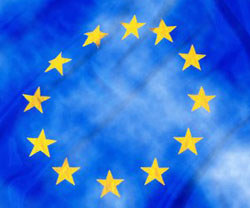New EU rules seen raising cost of Indian chemicals exports
 Helsinki, Nov 26 - The $35-billion Indian chemical industry that exports products to European countries may soon find the cost of doing business going up because of new legislation adopted by the EU to regulate their end-use.
Helsinki, Nov 26 - The $35-billion Indian chemical industry that exports products to European countries may soon find the cost of doing business going up because of new legislation adopted by the EU to regulate their end-use.
Indian companies export chemicals worth $2 billion per annum to Europe and are worried about the new legislation -- Registration, Evaluation, Authorisation and Restriction of Chemicals -- that seeks to manage risks arising from the use of chemical substances.
"We need to take steps to regulate the use of substances potentially harmful to humans and the environment. It is imperative that we act now," said Derek Knight, senior scientific adviser to the European Chemicals Agency.
"Yes, it will add to the cost for companies," Knight, whose agency is entrusted with the job of implementing the whole process, told IANS, while explaining that the main idea was to make these products and their use environment- and human-friendly.
Currently, 50,000 chemical substances come under the ambit of the legislation, including petrochemicals and agro-chemicals. But pharmaceuticals are not covered by the latest legislation, the experts said.
The onus of registering information on these components or the end-product has been put on the companies. The deadline is Nov 30, 2010.
"Of course, the cost will go up for Indian companies selling to Europe, but that depends on a case-to-case basis. It is likely to make some companies uncompetitive," said R. R. Gokhale, secretary-general of the Indian Chemical Council.
"But the government has agreed to refund some portion of the cost and has already begun to do so," Gokhale told IANS over phone from Mumbai.
The major cost of registering a component is towards tests and compiling information on the various properties of the chemical to ascertain if it is fit for commercial use.
According to a research paper cited in the Journal of Business Chemistry, these costs vary anywhere from $1,325 for a basic viscosity test to upwards of $129,300 for a bio-concentration test.
Additionally, the companies have to spend on chemists and administrative staff including consultants, forcing the total cost to balloon upwards of $297,000. All this will be applicable to Indian companies exporting to member countries of the European Union.
"All non-EU firms exporting to companies here will need to appoint a representative who will help them register their products," said Knight while admitting that the enhanced cost could put a lot of firms, especially smaller ones, under considerable strain.
"We are offering concessions to small and medium enterprises. We are already receiving a lot of inquiries from companies across the world. Nearly 15 percent of such queries are from India," added Knight.
According to Liisa Vahteristo, head of chemicals major Kemira's Reach Competence Centre in Helsinki, the cost to companies is going to spiral as they go ahead with the new programme.
"There is also a lot of confusion over what is covered under the new legislation."
India's ministry of chemicals and fertilisers says 650 domestic companies thus far have pre-registered for 7,500 substances through its help desk. This apart, several companies have also registered directly with the European agency. (IANS)